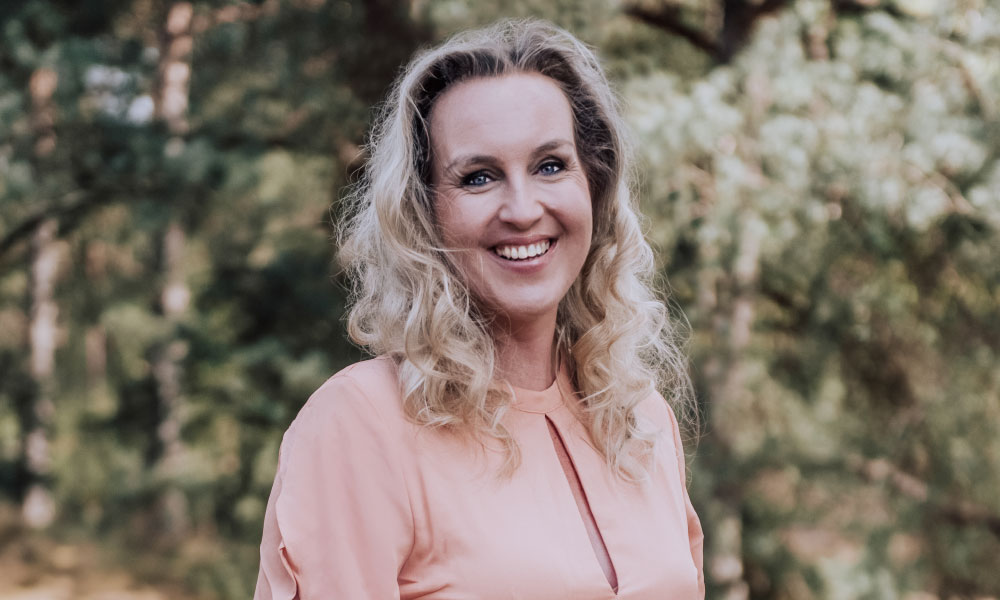Re:Set Dialogues
‘Lower the Bar:’ Reflections From One Mother’s Journey With Postpartum Depression
A new book aims to dispel myths and misconceptions of motherhood.
Postpartum depression (PPD) affects millions of women around the world, and in the United States alone, 70-80% of mothers will experience some form of mental health challenges. It can be a journey riddled with depression, guilt, sleepless nights and fatigue.
Tilda Timmers, a therapist, specializing in postpartum depression, has written a book capturing her battle with the condition, how she tackled it and her advice for women who find themselves navigating motherhood. “This Is Postpartum” launches on June 16 and is available for preorder.
We asked new mum, Sophie Simpson to ask Timmers what she wants to know about PPD.
Can you tell me a bit about your journey with postpartum depression?
When I gave birth to my daughter Livia, I was traumatized by the birth. It was long and stressful. The days after, I already realized I wasn’t feeling well. I cried for hours and had the most intense and intrusive thoughts. After weeks of struggling, I tried to talk to my husband, but I scared him with my thoughts about myself and motherhood. I noticed he didn’t understand, so I figured I would solve this on my own. It got worse and worse, and some months later, my best friend called me and asked me what was wrong. She convinced me to go to a therapist as soon as possible. After 10 months, I felt better and climbed out of the deepest sinkhole I’ve ever been in. When Livia turned one, I finally felt like myself again.
Does postpartum depression impact any particular women more than others?
PPD can happen to all mothers. If you’ve had depression before and you didn’t get the help you needed, the chances are that it will reoccur again. I see a lot of moms who went through PPD the first time and also got it the second time. That’s why it is important that new mothers get help as soon as possible even if it is as simple as you’re “just not feeling well.” Not all moms go through PPD, but all definitely need some support and help.
I have definitely felt the stress of being a new mother, isolated from family and the pressures of work during the COVID-19 crisis. Have you seen an increase in postnatal depression after the pandemic, and do you have any tips on how to deal with the dual stresses?
There are no numbers I can show you, but I did notice an increase in mothers who were struggling a lot. Becoming a mother is life-changing, it is beautiful but also very hard sometimes. The role change, all the responsibilities, your body which is still recovering, the lack of sleep and the raging hormones make it very difficult for new moms. Add a pandemic to the mix, and you can imagine how hard this is for new parents. My tips are to try and unwind from all the stress whenever you can. Maybe you like to read a good book or watch some Netflix when the baby sleeps — don’t stress about chores around the house too much. Once your kid(s) are asleep, please do something for yourself instead of mopping the floors. Lower the bar as much as possible. You’re doing the best you can. That’s good enough, really!
Becoming a mother is life-changing, it is beautiful but also very hard sometimes.
Although I am not going through postnatal depression right now, could it affect me at a later time when my daughter turns one?
It can, but then the label will probably not be postpartum depression anymore. To me, that label isn’t important. Some call it burnout or exhaustion, others say it’s depression. The result is the same: you feel awful and want to feel better again. Chances are when you’re not feeling well a year, or two years later, something was already going on in your mind, and you didn’t notice. That’s not your fault; this just happens sometimes. If in doubt, please look for help as soon as possible.


“This is Postpartum” is a reflection of Timmers’ battle with postpartum depression after the birth of her first daughter. Photo courtesy: The Dreamwork Collective
What are some of the signs to look out for, and what should be the immediate next steps if I recognize any?
- Being really tired and not wanting to get out of bed
- Pessimism and hopelessness: thinking you will never feel better ever again
- Overeating or loss of appetite. Some people start to overeat when they feel out of control while other moms forget to take care of themselves during those first months after giving birth.
- Loss of interest in things once pleasurable, including sex. They don’t feel the point of doing these anymore or simply don’t enjoy them any longer.
- Being unkind or rude to the people you love all the time and not recognizing that you’re doing it
- Sleep deprivation
- Degeneration of cognitive functions such as memory and concentration
Do you always have to reach out to an expert, or are there some coping mechanisms you can take forward yourself?
If you have mild symptoms, I would start doing yoga and read into mindfulness. Take some seriously needed me-time every day and try to relax a bit. If things are not getting better after six weeks, please start looking for professional help.
What role could my husband, family or friends play to help me through postnatal depression?
While we’re in the midst of a pandemic, you’re probably mostly relying on each other as partners. I would suggest making a schedule together. Who works when, who takes care of the baby, who can relax and indulge in some self-care. This way, the division of responsibilities is clear, and you know when you will have time to rest. Don’t bottle your feelings up; talk to each other about what is going on in your mind. You can still have or be a support system to your loved ones virtually.
Many women like myself are alone without their family support. Do you have any tips for them?
If you’re struggling mentally, please know that there are therapists like me who work through Zoom and can still help you if you’re not feeling well. You don’t have to do this alone! Talk to your best friend, your sister or mom about what is going on. That really helps to take some pressure off, and you can still keep in touch with people who live further away from you.
Can you tell us a bit about your new book “This Is Postpartum” and why did you want to write it?
When I was going through PPD, I kept wondering: am I the only mom who is feeling this way? Are other moms perfect and I’m seriously missing the mom gene here? I turned out not to be. I wrote my book for all the new parents who are having a hard time adjusting after giving birth. But it’s also not just for PPD moms and dads; it is for moms who are feeling insecure or need some recognition from other moms. My book is full of that and with tips on how to manage challenges such as sleep deprivation, self-care and having a sex life again. It’s like having a mom friend in the form of a book.
Also read: ‘Just man up:’ Postnatal Depression Among Fathers Is Still Not Taken Seriously

















